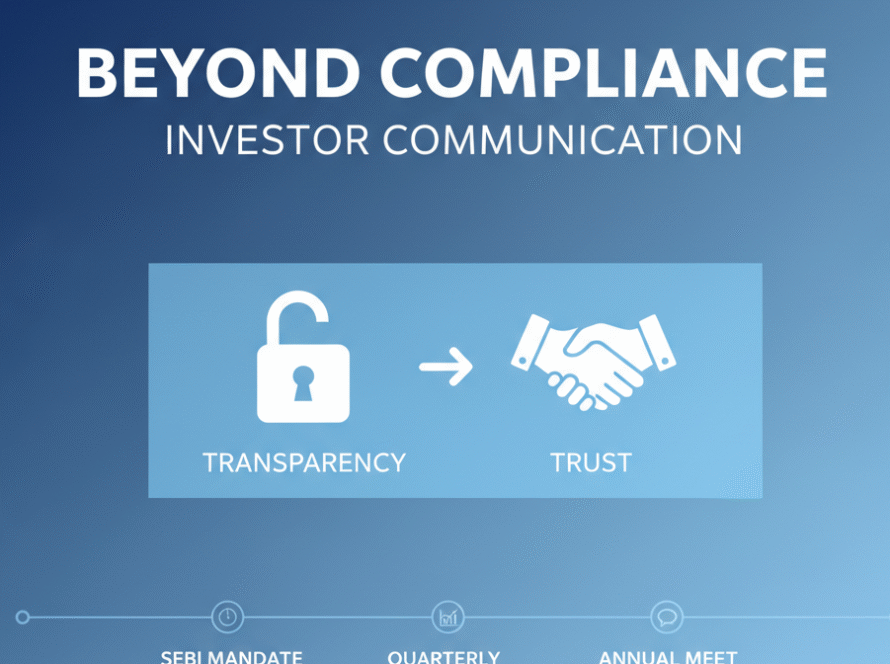In today’s dynamic business landscape, compliance has become essential for business to achieve long-term growth and success. This is especially crucial for startups, as they must operate within the boundaries of the law. Although compliance is sometimes viewed as a burden. It is crucial to understand that ignoring compliance regulations is like trying to fly without wings — it just won’t work!
Imagine, there is a startup working on a new idea and raising the initial capital from friends and family to build the product and step up for the next round of angel/institutional funding(VC).
VC will carefully check if everything is in order before they decide to invest their money… compliance (Integral part of corporate governance) is first looked upon..
Just as Cash is hailed as the king of the business world, compliance stands tall as a mighty shield of protection, allowing businesses to operate fearlessly and with confidence.
Let’s dig deeper to understand why compliance is important for businesses and take a closer look at how Auxano, a SEBI registered AIF, prioritizes and emphasizes compliance in its operations…
First, Compliance is not obligation but adherence to regulation:
Compliance, in its essence, refers to the act of conforming to rules and regulations set by governing authorities. These regulations are established to maintain;
- Fairness,
- Transparency & Trust and ,
- Ethical practices within the industries.
Therefore, it is not merely an obligation; it is a legal requirement that businesses must meet to operate lawfully and responsibly.
Transparency builds the Trust:
Think of compliance as the secret ingredient that makes a business truly trustworthy !
When a company follows the rules and regulations, it sends a clear message: “We value transparency, accountability, and responsible behavior.” This not only helps to foster long-lasting relationships with stakeholders but also shields the business from legal troubles.
Compliance as an organization Culture?
To build the compliance as an ingrained culture within an organization, its very important to have leadership commitment combined with the active participation and dedication of every team member and this can be achieved by
- Sense of responsibility
- Taking ownership
- Implementing clear policies to have SOPs for every compliance related activities
- Provide regular training and education
By introducing a shared commitment to compliance throughout the organization, a strong culture of accountability and ethical behavior is nurtured, laying the foundation for long-term success.
Collaboration and Knowledge Sharing:
By developing a regular habit of sharing the latest financial market and regulatory changes across the teams and departments, employees can pool their expertise and insights to effectively navigate complex regulatory requirements.
As in Auxano, we actively do 10 minute sessions daily within the team in order to exchange new ideas and share relevant knowledge about financial products and the latest updates applicable to our industry.
Additionally, we engage with –
- Peers, industry associations, and regulatory experts
- Exchange best practices, share insights, and collectively address compliance complexities
This collaborative approach not only benefits the organization & community as a whole but also strengthens the industry’s relationship with regulatory authorities.
Auxano’s Approach to Compliance –
Auxano, a SEBI registered AIFs, follows compliance as a culture..
Right from the beginning of our operations, we have had a dedicated compliance officer in place. Interestingly, while SEBI has only recently introduced the need for a compliance officer, we have been following this practice since the start. This shows how deeply ingrained a compliance-driven culture is at Auxano…
Our approach to compliance goes beyond just ticking off items on a checklist. We prioritize responsibility and accountability, ensuring that every team member values following regulations and conducting business ethically and with integrity.
We extend this culture of compliance to our portfolio companies as well to ensure the necessary compliance measures in place by regularly monitoring their operations. We do this through various means such as
- Monthly/Quarterly business review with portfolio entity ( we do get pushbacks )
- Financial MIS review
- Holding periodic board meetings and
- Obtaining an Annual Compliance Certificate
Way forward –
Compliance is not an afterthought but a proactive approach…It goes beyond being a mere checklist.
Implementing compliance as an integral part of the business ensures trust, risk mitigation, and avoidance of penalties. Non-compliance not only affects the organization alone but also impacts the entire ecosystem and erodes investor trust..
Firm commitments toward compliance takes organization/startups to the next level of growth as also ease in fund raise.
Author:
Rakesh Rana



